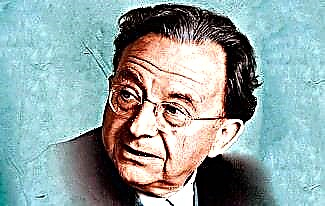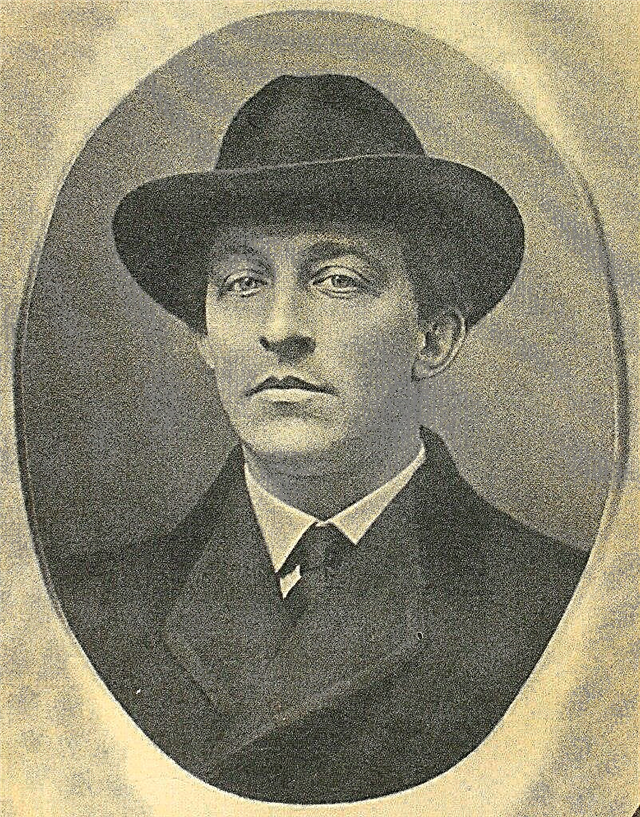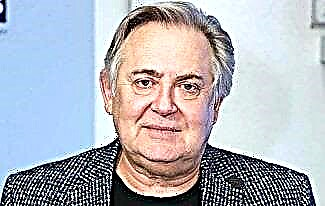Over the past three decades, which, ironically, coincided with the spread of high-speed Internet, millions of copies have been broken in the disputes over the Ukrainian language. Some demand that at least the entire population of Ukraine should speak the ancient language, which was severely persecuted in the Russian Empire and the Soviet Union. Others believe that Ukrainian is either an artificial language or nonexistent at all, and the nationalists are trying to pass off the dialect of the Russian language as a language. Someone talks about the generally recognized melody of Ukrainian, and someone refutes these arguments with examples from the vocabulary of Ukrainian TV presenters (“avtivka”, “hmarochos”, “parasolka”).

The truth is hardly somewhere in between. Philological discussions have long turned into political ones, and in those, no one can find the obvious truth. It is only obvious that there is a language (an adverb, if you like) spoken by several million people. There is a well-developed grammar, there are dictionaries, school teaching programs, and language norms are regularly updated. On the other hand, the existence and development of one language, and even rather poor from a scientific or technical point of view, can in no way be a reason for oppressing other languages and their speakers. Attempts of such oppression cause a reciprocal, and also not always adequate, reaction.
1. According to the version accepted in the Ukrainian scientific community, the Ukrainian language originated between the 10th and 5th millennia BC. He is a direct descendant of Sanskrit.
2. The name “Ukrainian” became common only after the 1917 revolutions. Yes, this language of the southern and southwestern outskirts of the Russian Empire, even separating it from the Russian language, was called “Ruska”, “Prosta Mova”, “Little Russian”, “Little Russian” or “South Russian”.
3. According to the international encyclopedia Encarta, Ukrainian is the native language of 47 million people. More cautious estimates call the figure 35-40 million. Approximately the same number of people speak Polish and a number of languages spoken in India and Pakistan.
4. The highest-grossing film in the Ukrainian language for all the years of independence grossed $ 1.92 million at the box office. The comedy “The Wedding Is Said” (“Crazy Wedding”) remains the champion of the box office, with a budget of $ 400,000.
5. There is no hard sign in the Ukrainian language, but there is a soft sign. However, the absence of a solid sign is more likely a progressive sign. In Russian, for example, it only complicates spelling. After the spelling reform in 1918 in Soviet Russia, the letters “ъ” were forcibly removed from the printing houses so that they would not print periodicals and books “in the old way” (and there were no such letters on typewriters). Until the early 1930s, instead of a hard mark, an apostrophe was put even in books, and the language did not suffer.
6. It is difficult to say why the late Alexander Balabanov chose Chicago as the place of adventures of the hero Viktor Sukhorukov in the film “Brother 2”, but the Ukrainian subtext in Viktor Bagrov's American adventures is quite justified. Chicago and its environs, united in Cook County, are not only home to the largest Ukrainian diaspora in the United States. In this district, if you have a Ukrainian-speaking employee, you can communicate with municipal authorities in Ukrainian.
7. The song in Ukrainian for the first and so far the last time topped the hit parade of the Ukrainian segment of YouTube video hosting in the last week of June 2018. For a week the first line of the rating was occupied by the composition “Crying” of the group (in Ukrainian the musical group is called “hert”) “Kazka”. The song only stayed at the top for a week.
8. The phrase from the film “Brother 2” illustrates an interesting phonetic feature of the Ukrainian language. When Viktor Bagrov goes through border control in the United States (“The purpose of your visit? - Ah, New York Film Festival!”), Even a clumsy Ukrainian border guard reprimands carefully: “You have a apple, salO e?” - In the Ukrainian language, “o” in an unstressed position is never reduced and sounds the same as under stress.
9. The first literary work published in the Ukrainian language was the poem "Aeneid" by Ivan Kotlyarevsky, published in 1798. Here are the lines from the poem:
10. Cursed three swelled up, And the sea roared out loud; They poured themselves into the tears of Trojans, Eneya takes care of her life; All the chaplains rozchukhralo, Bagatsko vіyska disappeared here; Then we got all a hundred! Yeney shout, "I am Neptune Pivkopi pennies in the hand of the sun, Abi on the sea the storm has died down." As you can see, out of 44 words, only “chavnik” (“boat”) has no Russian root.

11. The writer Ivan Kotlyarevsky is considered both the founder of the Ukrainian literary language and the person who discredited it. Definitions apply as required by the political context. Either I.P. Kotlyarevsky wrote in Ukrainian at the end of the 19th century, when A.S. Pushkin was not yet born, or Kotlyarevsky showed that the Ukrainian language is "smikhovyna" (Taras Shevchenko) and "an example of a tavern conversation" (Panteleimon Kulish ). Kotlyarevsky himself considered the language of his works to be a “Little Russian dialect”.
12. If in Russian the doubled letters are a purely spelling combination, then in Ukrainian they mean exactly two sounds (rarely one, but very long). That is, the Ukrainian word “hair” is not only written with two letters “s”, but also pronounced “hair-sya”. And vice versa, a lot of words written in the language with double letters in Ukrainian are written with one - "class", "trasa", "group", "address", etc. By the way, the last word, as in Russian, has two meanings: "location or residence" or "beautifully designed greeting or appeal." However, in Ukrainian, the first variant is “address”, and the second is “address”.
13. If you speculatively imagine a text with a volume of 1,000 characters, in which all letters of the Ukrainian alphabet will be used according to frequency, then this text will contain 94 letters "o", 72 letters "a", 65 letters "n", 61 letters "and ”(Pronounced [s]), 57 letters“ i ”, 55 letters“ t ”, 6 letters“ ϵ ”and“ ts ”each, and one each“ f ”and“ u ”.
14. The nouns “Coffee”, “kino” and “depot” in the Ukrainian language do not change in numbers and cases, but “coat” does change.
15. In view of the extreme politicization of the issue, the number and time of the appearance of borrowed words in the Ukrainian language is a reason for heated discussions. For example, it is generally accepted that about 40% of Ukrainian words are borrowed from the German language, although the territory of the present and any Ukraine has never bordered with Germany in any of its forms, at most - with the Austro-Hungarian Empire, and even then with its national outskirts ... From this, the supporters of the thesis about the antiquity of Ukrainians as a nation conclude that the words were borrowed even before our era, and their appearance speaks of the power and large size of the ancient Ukrainian state. Supporters of the “imperial” approach to history explain such a number of borrowings by the fact that the Ukrainian language was invented in the German General Staff to split the Russian Empire.
16. Dialects exist in all languages spoken over large areas. However, the Ukrainian dialects differ greatly in both pronunciation and vocabulary. Therefore, it is difficult for residents of the central and eastern parts of the country to understand the representatives of the western regions.
17. “Misto” - in Ukrainian “city”, “nedilia” - “Sunday”, and “vrodliva” - “beautiful”. “Mito” (pronounced [myto]) is not “clean, washed”, but “duty”.
18. In 2016, 149,000 copies of books in Ukrainian were published in Ukraine. In 1974, the corresponding figure was 1.05 million copies - a decrease of more than 7 times.
19. Most of the search queries from the territory of Ukraine are Russian-language queries. The number of applications in Ukrainian, according to various sources, is within 15-30%.

20. In the Ukrainian language there is the word “funeral” in the singular - “funeral”, but there is no word “door” in the singular, there is only “door”.









